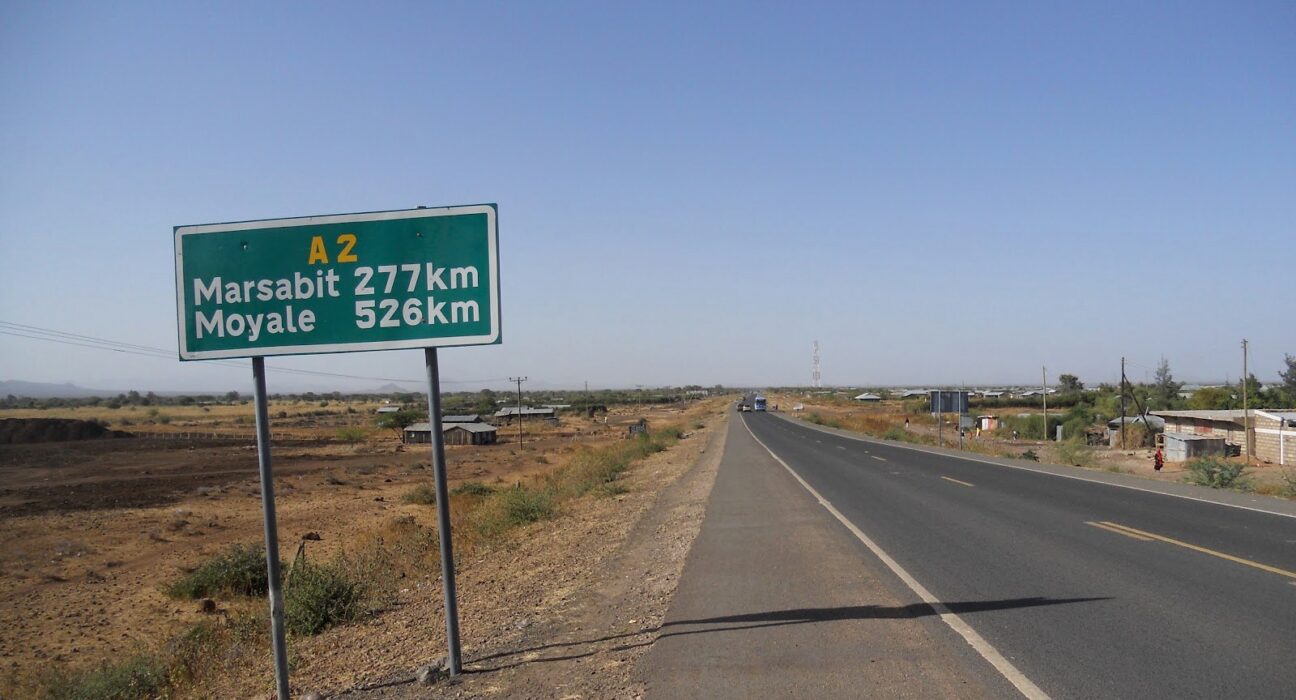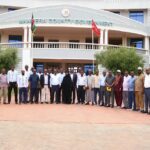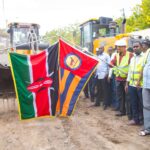Marsabit County, a vast and rugged frontier in Kenya’s northern expanse, is home to 20 electoral wards across four constituencies. Spanning 70,961.2 square kilometers and hosting a population of over 459,785 (2019 Kenya Census), this arid county blends pastoral traditions with untapped economic potential. For Kenyan business professionals, understanding these wards—from Saku’s urban pulse to North Horr’s remote plains—offers a roadmap to a region poised for growth.
Marsabit County: A Northern Giant
Marsabit County stretches across Kenya’s northern frontier, sharing an international border with Ethiopia to the north, and neighboring Turkana to the west, Samburu to the south, and Wajir and Isiolo to the east. Its four constituencies—Saku, North Horr, Laisamis, and Moyale—split into seven districts and 20 wards, each with an MCA steering local priorities. With 88,529 registered voters (IEBC 2022), Marsabit’s consumer base, though sparse, is resilient and expanding.
The county’s economy, valued at over KSh 10 billion annually (county estimates), hinges on pastoralism—over 2 million livestock—alongside small-scale trade and tourism tied to Marsabit National Park. Governor Ali’s focus on water infrastructure, renewable energy, and security aligns with Vision 2030, making Marsabit’s wards micro-markets worth exploring. Here’s the full ward rundown.
Full List of Wards in Marsabit County by Constituency
Marsabit’s 20 wards span four constituencies, each with distinct economic vibes. Below, they’re laid out with insights into what drives them.
Laisamis Constituency
Population: ~80,000 (est.). A southern pastoral and tourism hub.
- Laisamis Ward
- Profile: Trading center, pastoral base.
- Business Angle: Retail or livestock markets.
- Korr/Ngurunit Ward
- Profile: Remote, livestock focus.
- Business Angle: Fodder farming or solar solutions.
- Loglogo Ward
- Profile: Rural, trade and livestock.
- Business Angle: Meat supply or microfinance.
- Kargi/South Horr Ward
- Profile: Pastoral with small markets.
- Business Angle: Livestock trade or mobile banking.
- Lonyangalani/Mt. Kulal Ward
- Profile: Near Chalbi Desert, tourism potential.
- Business Angle: Eco-tourism or solar energy.
Saku Constituency
Population: ~100,000 (est.). The county’s urban and agro-core.
- Karare Ward
- Profile: Rural, farming and trade.
- Business Angle: Agro-tech or consumer goods.
- Mountain Ward
- Profile: Near Marsabit National Park, tourism base.
- Business Angle: Eco-lodges or retail.
- Sagante/Jaldesa Ward
- Profile: Peri-urban, trade growth.
- Business Angle: FMCG outlets or logistics.
North Horr Constituency
Population: ~120,000 (est.). A northern pastoral expanse.
- Dukana Ward
- Profile: Remote, near Ethiopia, livestock.
- Business Angle: Cross-border trade or fodder production.
- North Horr Ward
- Profile: Trading hub, pastoral base.
- Business Angle: Retail or meat supply.
- Maikona Ward
- Profile: Rural, livestock focus.
- Business Angle: Mobile markets or solar solutions.
- Turbi Ward
- Profile: Pastoral with small markets.
- Business Angle: Livestock trade or microfinance.
- Illeret Ward
- Profile: Near Lake Turkana, fishing potential.
- Business Angle: Fish processing or eco-tourism.
Moyale Constituency
Population: ~160,000 (est.). A border trade and agro-zone.
- Butiye Ward
- Profile: Rural, farming and trade.
- Business Angle: Agro-processing or farm inputs.
- Sololo Ward
- Profile: Pastoral, trade growth.
- Business Angle: Meat trade or solar energy.
- Heilu/Manyatta Ward
- Profile: Peri-urban, near Moyale Town.
- Business Angle: Retail or logistics.
- Golbo Ward
- Profile: Rural, livestock base.
- Business Angle: Fodder farming or microfinance.
- Township Ward
- Profile: Urban hub, Moyale Town center.
- Business Angle: Real estate or service hubs.
- Uram Ward
- Profile: Pastoral with small markets.
- Business Angle: Livestock trade or solar solutions.
- Obbu Ward
- Profile: Remote, near Ethiopia, trade.
- Business Angle: Cross-border commerce or consumer goods.
Economic Drivers of Marsabit’s Wards
Marsabit’s wards fuel a KSh 10 billion+ economy rooted in pastoralism but branching into new terrain. Livestock—2 million cattle, camels, goats, and sheep—generate KSh 6 billion yearly (county data). Small-scale farming, like maize and beans in wetter wards like Karare and Butiye, adds KSh 1 billion. Tourism, tied to Marsabit National Park and Lake Turkana, pulls in KSh 1.5 billion, with 15,000 visitors in 2023 (Kenya Tourism Board). Trade in urban wards like Township and North Horr contributes KSh 1.5 billion.
Key highlights:
- Pastoralism: 80% of households own livestock, per 2019 Census.
- Tourism: Up 4% yearly since 2020, driven by parks and desert landscapes.
- Population Density: 6.5 people per km², with Marsabit Town at 5,000+ residents.
The Marsabit-Moyale road upgrade (2023) cuts travel to Nairobi (550 km) to 10 hours, boosting connectivity.
Business Opportunities Across Marsabit’s Wards
Marsabit’s 20 wards offer tailored prospects for 2025. Here’s where to dive in:
Livestock and Agro-Processing
- Target Wards: Dukana, Korr/Ngurunit, Sololo, Golbo.
- Opportunities: Meat processing, fodder farming, or leather tanning.
- Why: Livestock exceeds local markets by 20%—value addition’s untapped.
Tourism and Hospitality
- Target Wards: Mountain, Lonyangalani/Mt. Kulal, Illeret.
- Opportunities: Safari camps, cultural tours, or lakeside lodges.
- Why: 15,000 visitors hit Marsabit Park in 2023—rural wards remain off-grid.
Retail and Consumer Markets
- Target Wards: Township, North Horr, Laisamis, Sagante/Jaldesa.
- Opportunities: FMCG outlets, tech shops, or trade hubs.
- Why: Urban wards see 5% consumer growth yearly.
Renewable Energy and Infrastructure
- Target Wards: Maikona, Turbi, Obbu, Loglogo.
- Opportunities: Solar grids or wind farms.
- Why: Only 4% of homes use electricity—solar potential hits 6 kWh/m² daily.
Challenges Facing Marsabit’s Wards
Marsabit’s wards face hurdles that sharp businesses can tackle:
- Infrastructure: 6% of roads are paved—rural wards like Illeret lag in trade.
- Water Scarcity: 85% rely on seasonal rains—drought cuts yields 30% yearly.
- Security: Border wards like Dukana face sporadic risks, slowing investment.
These gaps open niches—logistics firms, water tech, or security solutions could turn challenges into cash. In 2023, 25% used improved water sources, with Township at 65%—a rural-urban divide to bridge.





